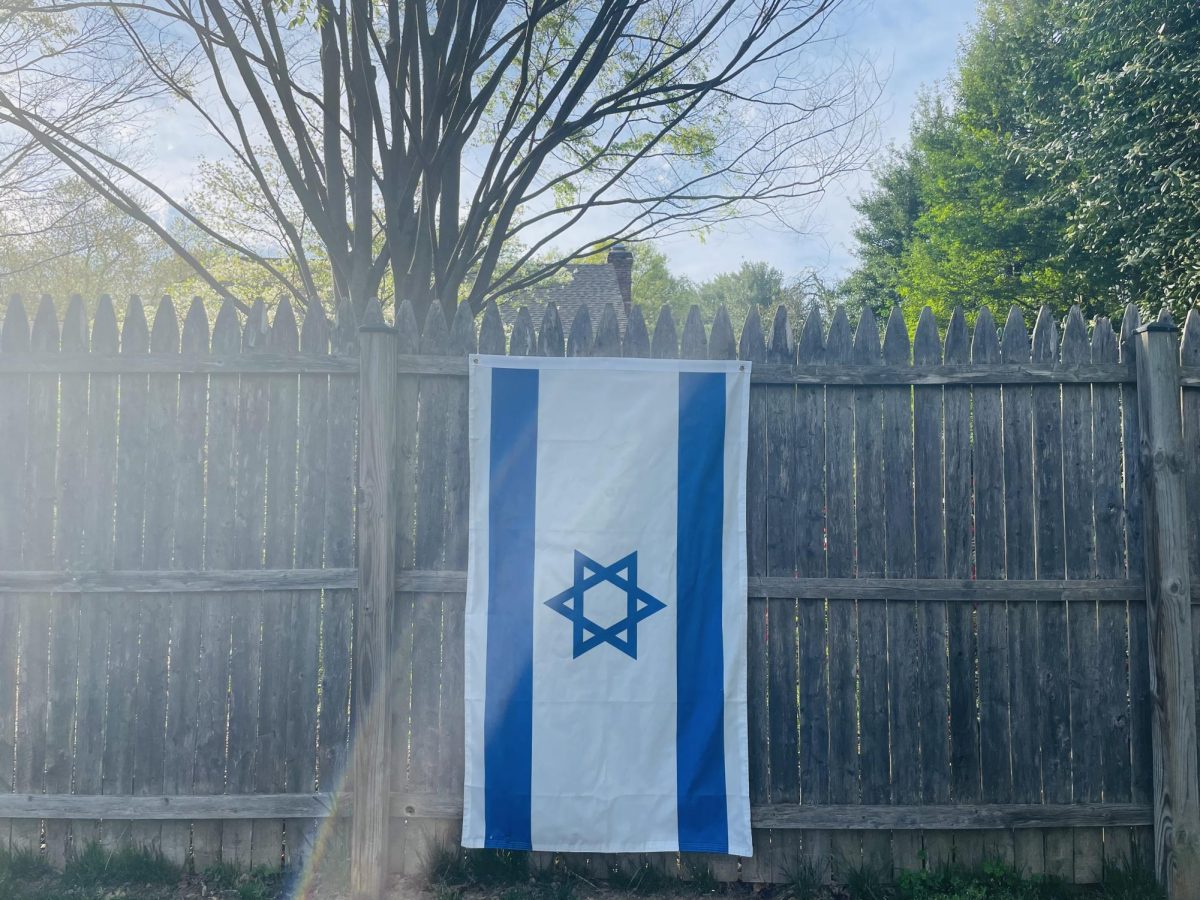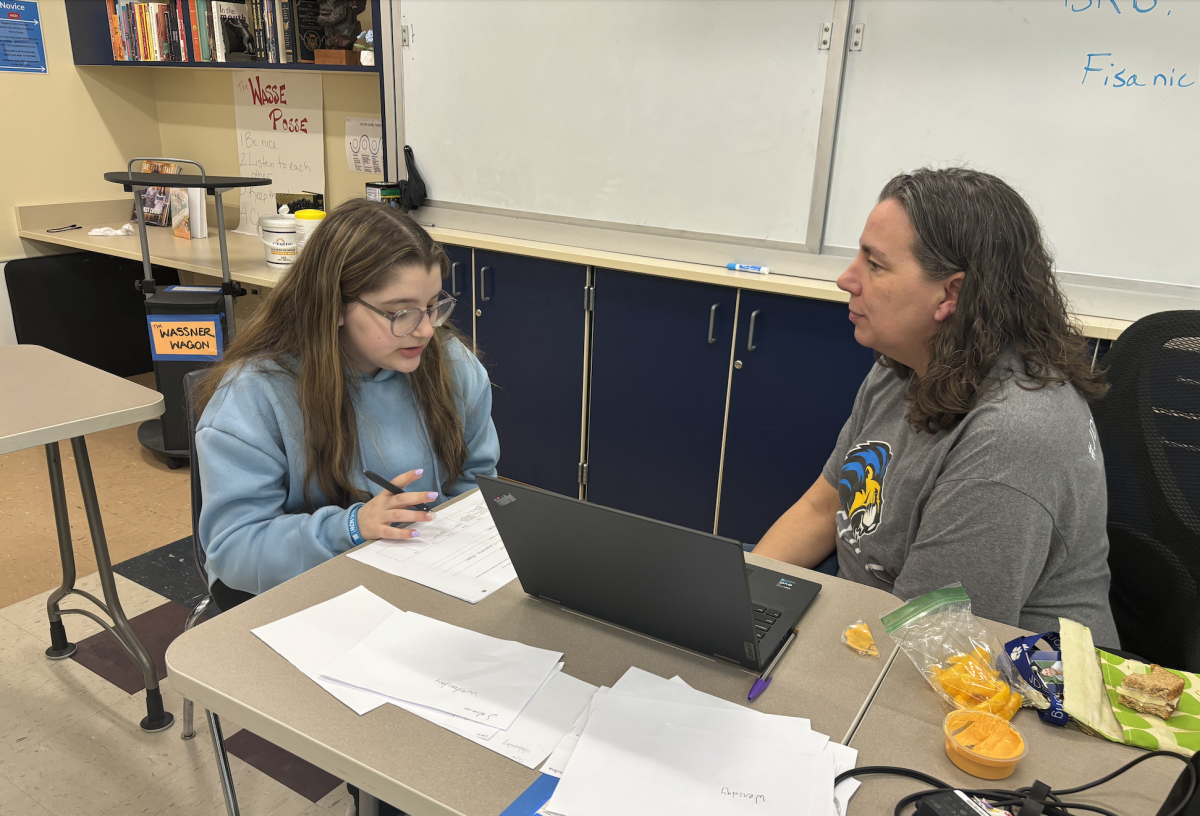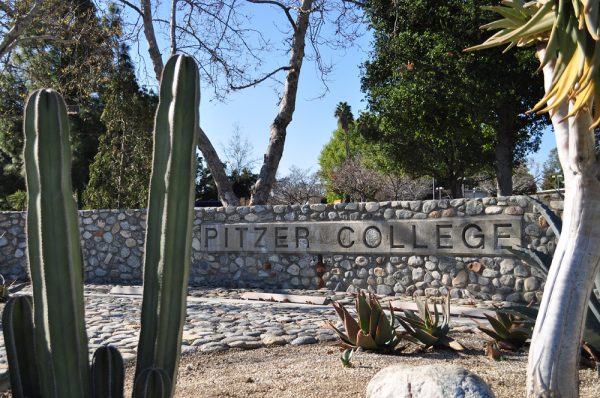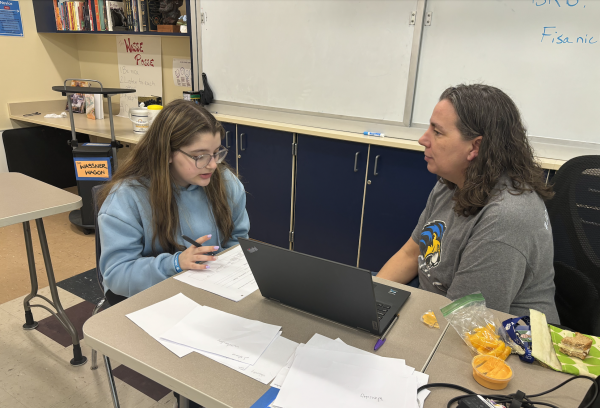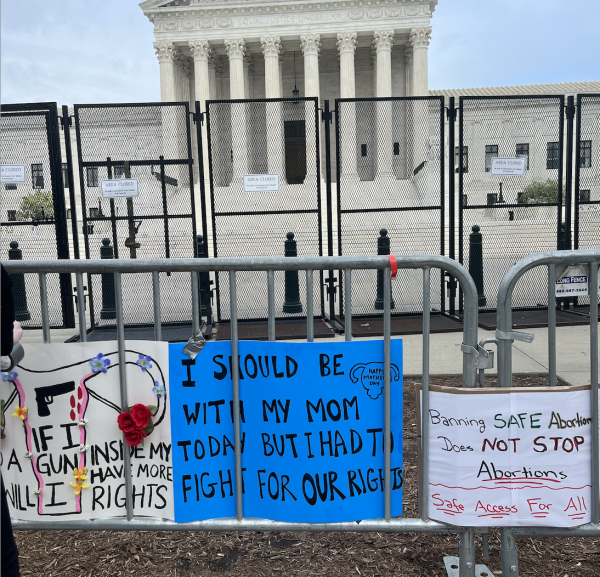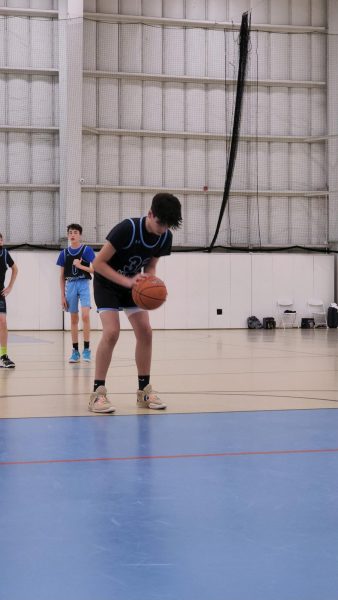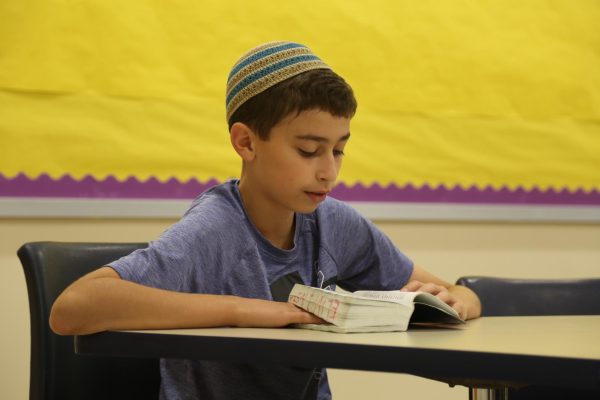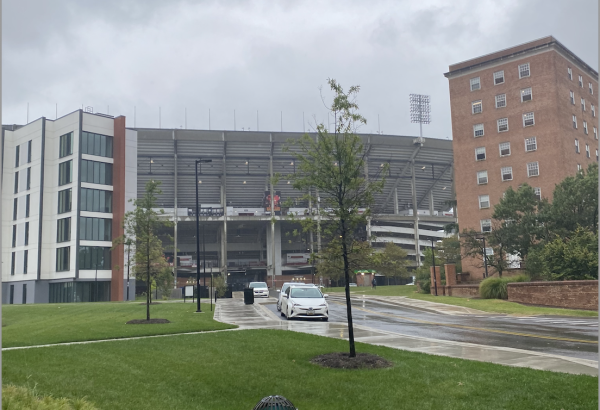Including all Jews
It’s time to consider creating a program at CESJDS for special needs students
photo courtesy of Bronya Lechtman
Lechtman’s younger brother Gabe, pictured at right, used to be in the inclusion program at the Berman Hebrew Academy. Her family would like to send him to JDS.
January 28, 2016
One of the things that I appreciate the most about CESJDS is how strongly it subscribes to the principle of community. JDS has done a phenomenal job of establishing a close-knit community that represents a diverse set of Jews. But a certain part of the Jewish community is missing.
JDS does provide resources for students with mild learning, behavioral, attention or social challenges. There is a structured study hall program, and the school has been extremely supportive of students who need extra time or other special accommodations on tests. While I am very appreciative that JDS offers these services, I have always been surprised that JDS has no inclusion program to accommodate Jewish kids with greater challenges.
If this were a different school with different core values, I might not feel as strongly about the creation of an inclusion program; however, with core values such as kehillah and derekh eretz, ensuring that we include as much of the Jewish community as possible should be one of our strongest priorities. It should be viewed as our next step, not as something that will happen at some point down the road, which is what I’ve been heard stated over and over again.
Creating an inclusion program is extremely expensive and challenging. The school would have to hire many new teachers and therapists, create personalized curricula, purchase sensory equipment and much more. In order to accommodate children with special needs, the school would most likely have to drastically increase tuition for those students who would be participating in the special needs program.
Before dismissing this possibility, we need to realize that many parents with special needs children in this area are already sending their children to incredibly expensive specialized schools.
Some examples of tuitions of special needs schools in our area would be the Auburn School, which is $39,850, the Katherine Thomas School, which ranges from $31,295 to $59,204 depending on the program that the child is enrolled in and the Ivymount School, which depending on the program can be well over $60,000. Not included in these tuitions are the additional therapy costs. The typical tuition for the Berman Hebrew Academy starts at $14,850 and increases to $21,700 by high school. The tuition of their inclusion program, Sulam, ranges from $35,000 to $43,000 depending on the program.
With a Lower School tuition of $23,860 and an Upper School tuition of $30,600, the tuition of an inclusion program at JDS would be in the same price range as these other schools if it were to be double that of Upper or Lower School tuition. Therefore, before coming to conclusions, the administration should be reaching out to the JDS and larger Jewish community to get a sense of how many people would be interested in attending an inclusion program at JDS if it were to be offered. Also, in order to make the tuition less astronomical, JDS could reach out to the community to see if there would be willing donors to help start up this program, which is what the Berman Hebrew Academy does. According to Sulam director Lianne Heller, the tuition amount “does not even cover what it costs to educate a child who needs special supports that allow him or her to be included in a Jewish school. However, we are very fortunate to live in a Jewish community that is extremely moral and generous, and one that believes in our mission. Donations from our community result in significant scholarships that allow children in need to attend Sulam.”
If the Berman Hebrew Academy can can get such money from the Jewish community, why can’t we? Why can’t JDS apply for a grant just like they did recently to reboot the middle school? These would be great first steps in working towards creating a broader inclusion program in the near future.
I personally know many Jewish parents who pay for these special needs private schools, and would be willing to pay the tuition for an inclusion program at JDS. There are so many families who want their children to receive a pluralistic Jewish education and be in an inclusive environment with neuro-typical peers, where they are embraced as part of the community. This includes my own family, even though it would be a massive economic strain. I have a 13-year-old brother with special needs who cannot now attend JDS, but has always wanted to.
Ever since my brother started learning for his bar mitzvah, his interest in Judaism has escalated, and he wants to learn as much as he can about it. He frequently asks me about definitions of Hebrew words, Jewish traditions, Jewish history and even difficult questions about the Holocaust. I have done my best to take as much of JDS home as I can, but it’s no substitute for actually attending JDS.
We have tried to find other solutions for my brother to be able to receive a Jewish education. He actually attended Berman Hebrew Academy for three years, where he was part of Sulam. My family, however, is not Modern Orthodox, and would have preferred for him to receive a pluralistic Jewish education. Even so, we were extremely appreciative of Sulam’s beliefs, which, according to their website, are that “every student has the right to a rigorous Jewish education alongside his/her peers,” and that “every student can be a contributing member of the Jewish community and society at large.”
I do want to emphasize that JDS does recognize the value of spending time with members of the Jewish community who have special needs. For example, many students work with kids with special needs in organizations such as Friendship Circle, and JDS held an assembly this year about Friendship Circle to encourage students to volunteer with the organization. I’m extremely proud of the JDS community’s involvement in such an amazing program; however, encouraging students to hang out with kids with special needs for an hour a week outside of school, or work with them at a summer camp, is not the same as integrating them into our community.
While a broad inclusion program would benefit the lives of Jewish kids with special needs, it would also benefit the entire JDS community. Many of these kids and teens have incredibly important contributions to make, whether it’s through their kindness, athleticism, intelligence, sense of humor or perspective. These kids deserve much more than an activity that we do on the side for community service hours. They should be welcomed as equally valuable members of the JDS community just as the rest of us are.







